Filter by
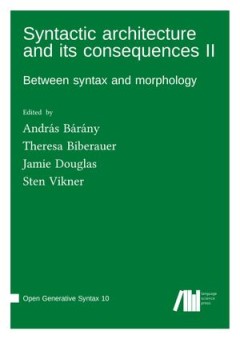
Syntactic Architecture and its Consequences II : Between Syntax and Morphology
This volume collects novel contributions to comparative generative linguistics that “rethink” existing approaches to an extensive range of phenomena, domains, and architectural questions in linguistic theory. At the heart of the contributions is the tension between descriptive and explanatory adequacy which has long animated generative linguistics and which continues to grow thanks to the i…
- Edition
- -
- ISBN/ISSN
- 9783961102884
- Collation
- -
- Series Title
- Open Generative Syntax 10
- Call Number
- 415 SYN

A Greek Grammar Accidence and Syntax for Schools and Colleges
John Thompson (c.1866–1936) was Classics master and headmaster (1908–27) at the prestigious High School, Dublin. A competent linguist, he translated from German, produced a Latin primer, and wrote a Sanskrit course, though he opposed the teaching of Irish. He became a Member of the Royal Irish Academy (1912), President of the Classical Association (1918) and was appointed Officier d'Académ…
- Edition
- -
- ISBN/ISSN
- 9781139333825
- Collation
- -
- Series Title
- Cambridge Library Collection - Classics
- Call Number
- -
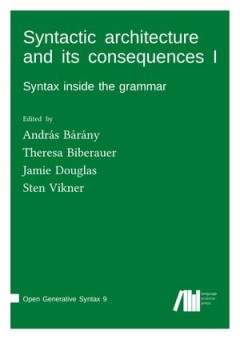
Syntactic architecture and its consequences I : Syntax inside the grammar
This volume collects novel contributions to comparative generative linguistics that “rethink” existing approaches to an extensive range of phenomena, domains, and architectural questions in linguistic theory. At the heart of the contributions is the tension between descriptive and explanatory adequacy which has long animated generative linguistics and which continues to grow thanks to the i…
- Edition
- -
- ISBN/ISSN
- 9783961102754
- Collation
- -
- Series Title
- Open Generative Syntax 9
- Call Number
- 415 SYN
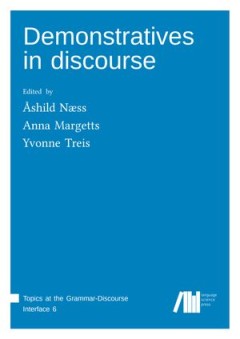
Demonstratives in discourse
This volume explores the use of demonstratives in the structuring and management of discourse, and their role as engagement expressions, from a crosslinguistic perspective. It seeks to establish which types of discourse-related functions are commonly encoded by demonstratives, beyond the well-established reference-tracking and deictic uses, and also investigates which members of demonstrative p…
- Edition
- -
- ISBN/ISSN
- 978-3-96110-286-0
- Collation
- -
- Series Title
- Topics at the Grammar-Discourse Interface 6
- Call Number
- 425 DEM
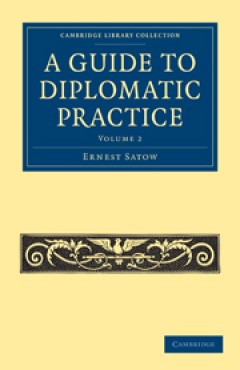
A Guide to Diplomatic Practice
Recruited straight from university, Ernest Satow (1843–1929) became one of the most respected British diplomats, particularly in Japan, where he is still remembered. After a career spent mostly in the rapidly developing Far East, he retired in 1906. Just before the outbreak of war, he was asked to compile a work on international diplomacy, and 'Satow', as it has become known, was first publis…
- Edition
- -
- ISBN/ISSN
- 9780511995200
- Collation
- -
- Series Title
- Cambridge Library Collection - British and Irish History, General
- Call Number
- -
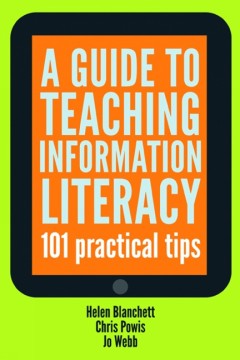
A Guide to Teaching Information Literacy
The role of the librarian increasingly involves delivering information literacy using a range of teaching methods, from delivering induction sessions to informal one-to-one support on a day-to-day basis. Although this is increasingly recognized, many practitioners do not have teaching qualifications and are often left to fulfil a role for which they feel ill-equipped. Even when they do have tea…
- Edition
- -
- ISBN/ISSN
- 9781856048767
- Collation
- -
- Series Title
- -
- Call Number
- -

Arbeitstagung Bonn 2013: In Memory of Friedrich Hirzebruch
This volume contains selected papers authored by speakers and participants of the 2013 Arbeitstagung, held at the Max Planck Institute for Mathematics in Bonn, Germany, from May 22-28. The 2013 meeting (and this resulting proceedings) was dedicated to the memory of Friedrich Hirzebruch, who passed away on May 27, 2012. Hirzebruch organized the first Arbeitstagung in 1957 with a unique concept t…
- Edition
- Ed. 1
- ISBN/ISSN
- 978-3-319-43648-7
- Collation
- X, 425
- Series Title
- Progress in Mathematics
- Call Number
- 512.5 ARB a
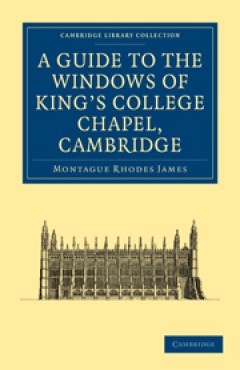
A Guide to the Windows of King's College Chapel, Cambridge
M. R. James (1862–1936) is probably best remembered as a writer of chilling ghost stories, but he was an outstanding scholar of medieval literature and palaeography, who served both as Provost of King's College, Cambridge, and as Director of the Fitzwilliam Museum, and many of his stories reflect his academic background. His detailed descriptive catalogues of manuscripts owned by colleges, ca…
- Edition
- -
- ISBN/ISSN
- 9780511710551
- Collation
- -
- Series Title
- Cambridge Library Collection - Cambridge
- Call Number
- -

Pogrom Cries – Essays on Polish-Jewish History, 1939–1946 2nd Revised Ed…
This book focuses on the fate of Polish Jews and Polish-Jewish relations during the Holocaust and its aftermath, in the ill-recognized era of Eastern-European pogroms after the WW2. It is based on the author’s own ethnographic research in those areas of Poland where the Holocaust machinery operated. The results comprise the anthropological interviews with the members of the generation of Holo…
- Edition
- -
- ISBN/ISSN
- -
- Collation
- -
- Series Title
- -
- Call Number
- -

Impact of Visual Simulations in Statistics: The Role of Interactive Visualiza…
Glena Iten investigates the impact of interactive visual simulations on conceptual understanding of statistical principles. Overall, all students were able to increase their knowledge by working with visual simulations, whereas students who could manipulate statistical graphs in the simulation on their own were significantly faster. Currently, interactive learning tools explaining statistical c…
- Edition
- 1
- ISBN/ISSN
- 978-3-658-08334-2
- Collation
- IX, 48
- Series Title
- BestMasters
- Call Number
- 150 ITE i
 Computer Science, Information & General Works
Computer Science, Information & General Works  Philosophy & Psychology
Philosophy & Psychology  Religion
Religion  Social Sciences
Social Sciences  Language
Language  Pure Science
Pure Science  Applied Sciences
Applied Sciences  Art & Recreation
Art & Recreation  Literature
Literature  History & Geography
History & Geography